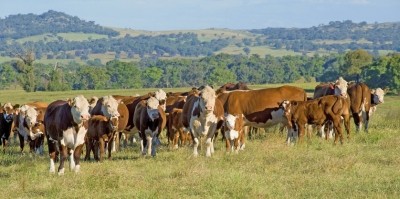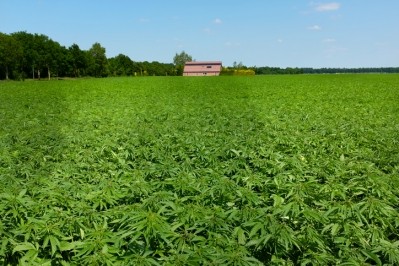US Farm Bill progress prompts feed, ag industry applause, calls for presidential approval

The proposed new 2019 Farm Bill passed the Senate Tuesday and the House of Representatives Wednesday, however, the bill has yet to be signed into law by the president.
Several organizations and stakeholders in the feed and agricultural industries have applauded the passage and called for the bill to be signed quickly.
If approved, the bill would be in place through fiscal year 2023 and has the ability to modify US Department of Agriculture (USDA) programs in several areas.
Programs covered by $867bn legislation include commodity support, conservation, trade and international food aid, farm credit, nutrition assistance, rural development, research and extension activities, forestry, energy, horticulture and crop insurance.
This year algae and hemp were among the crops to see changes in the Farm Bill, according to the bill as both were added to crops that can apply for the federal crop insurance program.
That change for algae was one the Algae Biomass Organization (ABO) has been requesting, said Matt Carr, executive director with ABO.
“We heard from algae producers over the course of the past year or so that the absence of a federal crop insurance program for algae is a major obstacle to securing finance for new algae farms as well as the expansion of existing farms,” he told FeedNavigator. “It becomes difficult without that backstop to natural disasters or other risks that all forms of agriculture face. We were finding that investors were reluctant to put up the capital needed.”
The group also was happy with several of the inclusions made in the bill that address support and funding for the algae industry as they lined up with the elements of the Algae Agriculture Act of 2018, which was introduced earlier in 2018, he said.
“We were very pleased to see that many of those provisions made it into the Farm Bill,” he added.
The new legislation included support for algae research through the USDA’s research and extension efforts, he said.
Previously, much the development in algae production came from the Department of Energy, but the perception of how algae will be used is changing.
“As we’ve seen the algae industry evolve over the last several years, it’s moving more and more into agricultural markets for food and feed and for soil amendment, fertilizers, nutrient management and other areas, so we’ve stretched beyond the natural area of investment for the DOE,” said Carr. “So we’ve been talking to the Department of Agriculture about the need to invest in algae research at the farm scale.”
If the bill is signed, then there will need to be work with the USDA to implement the changes, he said regarding what is coming next for the organization’s efforts.
“What we’re seeing is an emerging trend that animal and fish feed is likely to be the leading market opportunity for algae production … probably for the next decade or so,” he said. “Feed manufacturers have come to recognize the unique nutritional attributes of algae particularly the ability to produce the omega-3 fatty acids EPA and DHA that are usually available only from fish or krill, as well as, increasingly looking at the whole algae as part of a plant-based protein alternative for a whole algae meal.”
“So we’re seeing interest today the biggest drivers are in fish feed, particularly salmon feed, and increasingly other animal growers – beef cattle, dairy, poultry and swine – are really looking with interest at algae as an ingredient for feed – that’s a huge market,” he added.
Industry response
Along with the ABO, members of the American Feed Industry Association (AFIA), American Soybean Association (ASA), and the National Corn Growers Association (NCGA) said they supported the passage of the bill.
The most recent Farm Bill provides support for provisions intended to improve animal health and welfare and expand opportunities for animal feed producers, said the AFIA.
The association was following several aspects of the legislation and specifically supported the reauthorization of programs designed to improve market access including the Market Access Program and the Foreign Market Development program, the organization said.
The bill also drew praise for its funding of research into animal health and diseases through its authorizations of the National Animal Disease Preparedness and Response Program and the National Animal Vaccine Bank.
The legislation also is continuing to provide funding for industry-related research including the Foundation for Food and Agricultural Research – which has helped address industry needs by encouraging public-private partnerships, said the AFIA.
The NCGA also called for the bill to be quickly signed and added that it was pleased to see the continued support for the crop insurance program and additional funding for trade promotion efforts.
“To put it bluntly, the farm economy stinks,” said Lynn Chrisp, NCGA president. “Between depressed commodity prices, record low farm incomes and tariffs and trade uncertainty, farmers are facing difficult decisions. Getting the Farm Bill passed, and signed into law, is one less thing they need to worry about,” he added.
The ASA echoed the feeling that the bill’s passage helps provide some stability to both soybean producers and across the agricultural industry. It also asked for a quick approval of the legislation.














